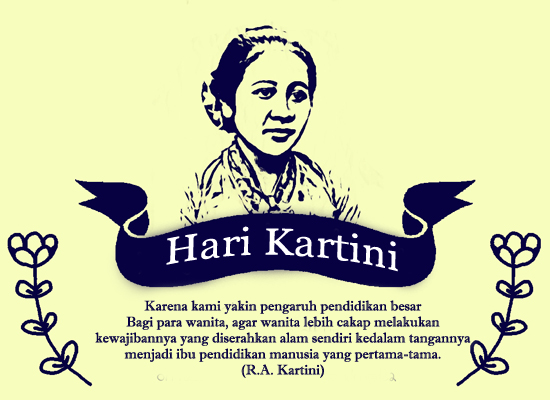Bali is still regarded as the most attractive destination to investing in property in Indonesia although other regions such as Bintan, Lombok or Flores are catching up. Here we highlight some important aspects which a prospective property buyer should take into consideration and be aware of when looking at investing in Indonesia.
General Recommendations
Indonesia has a rather complex system of land titles and a strict regime of laws regulating foreign investment in property. Therefore, it is essential for any buyer to be familiar with the general legal framework and the options that are available to foreigners when it comes to property acquisitions.
When considering investing in a country with a legal framework largely different from ones home jurisdiction it is recommended to have an impartial and independent legal advisor to conduct due diligence on a property before any substantial financial commitments are made. Due diligence is important to assess whether an offered property has unencumbered legal title, proper access and permits and also whether the person offering the property is legally allowed and authorized to do so.
It is important to note that in Indonesia not only do national laws apply but also that there are often local regulations implemented on a provincial or regional level which can affect the use or legality of a property and also the application of national laws. Furthermore there are custom local law elements in Indonesia known as adat law, which should be taken into account.
Laws Regulating Property
The principle law of Indonesia, which governs rights and entitlements over properties, is Law No. 5 of 1960 concerning Basic Agrarian law. In 2011, The Indonesia government further issued a new law regulating condominium developments, which specifically regulates rights over condominiums. Furthermore, there is a multitude of additional national, provincial and regional regulations which may further specify the general rules set out under the aforesaid laws and which must be take into account when applying the principle legal stipulations under the Agrarian Law.
Hak Milik (Freehold)
First of all, it is important to note that only Indonesian citizens can own freehold title to land in their own name such title usually being referred to as Hak Milik.
Nominee Arrangements
One may find contractual arrangements whereby a foreigner uses a local Indonesian citizen as a nominee to hold the freehold title over a property for the beneficial interest of such foreigner. Such nominee arrangements usually involve a number of contractual documents including, e.g. a statement by the registered Indonesian owner stating that the land is held for the exclusive benefit of the foreigner, an agreement granting the foreigner an unlimited right of use over such property, a loan agreement combined with a mortgage registered in the name of the foreigner and numerous powers of attorney granted by the Indonesian freehold owner to the foreigner to provide legal control over the property. Those documents are designed to allow a foreigner to dispose of and deal with the freehold title at his discretion without permission of the Indonesian nominee.
With regard to such nominee arrangements. It is important to note that under Indonesian law any transaction which is intended to directly or indirectly transfer Hak milik title to a foreign person is void as a matter of law with the consequence of losing such property to the state without any rights for compensation whatsoever for any payments made. With view to the aforesaid law, the legal risk and potential implications of using a nominee arrangement to attempt to control a property is evident as such arrangements may not hold up if those were scrutinized by a judge in an Indonesian court of law. It is therefore generally not recommendable to adopt such practice.
Hak Pakai (Right To Use)
A legal option for a foreigner to acquire an interest in a property in Indonesia is to acquire a title over land referred to as Hak Pakai (Right to Use). A Right to use is granted through a deed made before a public notary acting as land conveyance official (Pejabat Pembuat Akta Tanah or PPAT) and registered in the land certificate. Right to Use, if granted over Hak Milik land, is valid for a period of maximum 25 years after which the right expires. By virtue of a private agreement between the Indonesian freehold owner and the foreigner the granting of a new Hak Pakai term upon the expiration of the 25year term maybe agreed. If granted over state land (Tanah Negara) a Right to Use title may be extended for another period of 20 years whereas such extension must be applied for at least two years before the initial term expires. Upon expiration of the extension, the holder of a Right to Use title may apply for a new Hak Pakai title of 25 years. The granting of such a new Right to Use title would usually be subject to governmental approval and public master planning. Throughout the term of a Right to Use granted over state land, the holder of such right may sell the property to an Indonesian who could covert and upgrade the title of the land back into freehold (Hak Milik) title.
Indonesian law stipulates that a foreigner should be resident or domiciled in Indonesia in order to qualify for Right to Use title. Some land offices may therefore require provision of proof of domicile or residency by virtue of a permit of stay (KITAS or KITAP) in order to register a land certificate. As a result a foreigner may not be eligible for Right to Use if the foreigner does not stay permanently in Indonesia, i.e. for foreigners staying in Indonesian a tourist visa only.
Hak Sewa (Leasehold)
Foreigners, regardless of their visa status, are eligible to enter into long-term leasehold arrangements regarding properties. A foreigner may either lease an empty land plot to build on it or lease land with a building already constructed. A leasehold right over a property is established by virtue of private contract between the Indonesian landowner and the foreigner. Commonly long-term leasehold contracts are documented in form of a notarial deed but can also be executed as private agreement. A leasehold right is not registered in the land certificated. Notwithstanding a leasehold right is legally binding and also inures to the benefit of the successors of the respective parties should the lessor or lessee pass away throughout the lease term. There is no explicit rule under Indonesian law as to the maximum allowed term of leasehold right. However, given that registered usage right over land under freehold (Hak Milik) title are limited in time, it is general recommendable to limit a leasehold term to a period not exceeding 30 years. Extension options may be pre-agreed between the parties. With regard to such extension options a foreigner should ensure that the option right is worded strongly and does not leave room for interpretation. E.g., it is advisable to pre-agree the rental value for any future extension or provide for clear methods how the rental value shall be determined in due course. Sometimes parties agree the gold value or the value of commodities such as rice to determine the rent at the time of extension.
Hak Guna Bangunan Or Hgb (Right To Build)
Another option to acquire an interest in a property in Indonesia is to acquire an interest in land through corporate ownership. Indonesian companies cannot hold freehold title but a title known as Hak Guna Bangunan or HGB (Right to Build). A Right to Build is granted through a deed made before a public notary acting as land conveyance official (PPAT). Right to Build, if granted over Hak Milik land, is valid for a period of maximum 30 years after which the right expires. By virtue of a private agreement between the Indonesian freehold owner and the company the granting of a new HGB term upon the expiration of the 30-year term may be agreed.
If granted over state land (Tanah Negara) a Right to Build title may be extended for another period of 20 years whereas such extension must be applied for at least two years before the initial term expires. Under prevailing laws, after the extension term a HGB title can be renewed for a new term of 30 years and such renewal would be subject to government approval and public master planning. HGB is registered in the land certificate and widely accepted as collateral by Indonesian banks to obtain finance. If HGB title is sold and transferred to Indonesian individuals it can be converted into Hak Milik title.
Under Indonesian law a foreigner may hold shares in a limited liability company established under Indonesian investment laws, which is known as PMA company. Depending on the business objective of a PMA company foreign shareholding may be up to 100% and director and commissioner of such company can be foreigners.
Acquiring interest in a property through corporate ownership via HGB title as a method of investment is rather attractive for acquisition of high-end properties and for structuring development projects. Establishing a PMA company only for the purpose of holding a single individual property may not be recommendable as the establishment and maintenance of a PMA company is relatively costly. Furthermore the company would have to be maintained in good health throughout the ownership term and the company would be expected to report income and generate certain profits at some point in order to be seen as a legitimate business enterprise.
Summary
It is generally possible and feasible for foreigners to lawfully acquire an interest in property in Indonesia under certain conditions. Any person looking at buying a property in Indonesia should seek independent legal advice to determine the most appropriate method of acquisition for their personal circumstances or investment purposes and conduct thorough due diligence prior to committing substantial funds.





